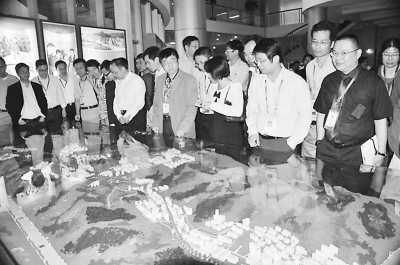
(Ecns.cn) -- China's future tycoons are more likely to emerge from Internet companies, healthcare businesses, service industries and retail trade, reports China Newsweek magazine.
That prediction was made based on the analyses of industry observers like Rupert Hoogewerf, Hurun's chairman and chief researcher, and Zhou Jiangong, editor-in-chief of Forbes China.
Although the real estate industry will still be a pillar in the process of urbanization, businesses related to the Internet, healthcare and services will provide more space to create wealth, says Zhou.
With further development of mobile Internet, cloud computing and artificial intelligence, cyber power is dynamic, so anything is possible here, he says.
In recent years, a large number of entrepreneurs have turned to mobile Internet during the initial start-up phase, and the value of the industry is increasing rapidly.
In the past, a man had to have a pot of gold to start up a business, but now it is quite different, says Hoogewerf. Once he has a really good business model, he can immediately carry out his plan with the help of private investors, and then from professional venture capital partnerships, he adds.
Seven years ago, Zhang Yi, a grassroots entrepreneur, opened a consulting firm that targets the mobile Internet market in Guangzhou, Guangdong Province. Although he built the company from scratch, its office space is now five times as large.
With a positive growth forecast, Zhang says his company's personnel size will double in 2013, a result of the booming market.
According to his analysis, the future belongs to mobile Internet: This year alone, the market value of the industry will probably exceed 100 billion yuan in China, which will attract more investors.
In five to eight years, many entrepreneurs in the market will become China's new rich, especially after the government officially issues 4G licenses for LTE TDD networks, he adds.
Meanwhile, as China's society ages, demand for health and medical care is growing fast, says Zhou Jiangong.
Li Tiantian, founder of an online medical community, has seized the opportunity with an innovative business model that targets physicians and healthcare professionals.
His website DXY.cn is a platform where physicians can gain insight from colleagues, discuss new clinical findings, report events and more. It has already grown into one of the largest online medical communities in the world with more than 2 million registered members.
Because of the changing population demographics in China, the aging market has already become a huge business opportunity amid the shortage of elderly care services, notes China Newsweek.
During the annual session of the Chinese People's Political Consultative Conference (CPPCC) last year, a report on the shortage of nursing home beds for the elderly was a prime example of how the country's rapidly ageing population has become a major financial and social issue.
According to statistics from the Ministry of Civil Affairs, there were only 3.9 million nursing home beds by the end of 2012, which meant that every 1,000 elderly people had to share 20.5 beds.
Moreover, many adults say that pressure in the workplace and high living costs have made it difficult to take care of their parents.
Under such circumstances, nursing homes and elderly care services are an investment that promise a good return in the future.
Retail businesses and the financial industry are also very promising, as many second-generation rich are reluctant to continue with manufacturing, says Hoogewerf.

Copyright ©1999-2011 Chinanews.com. All rights reserved.
Reproduction in whole or in part without permission is prohibited.